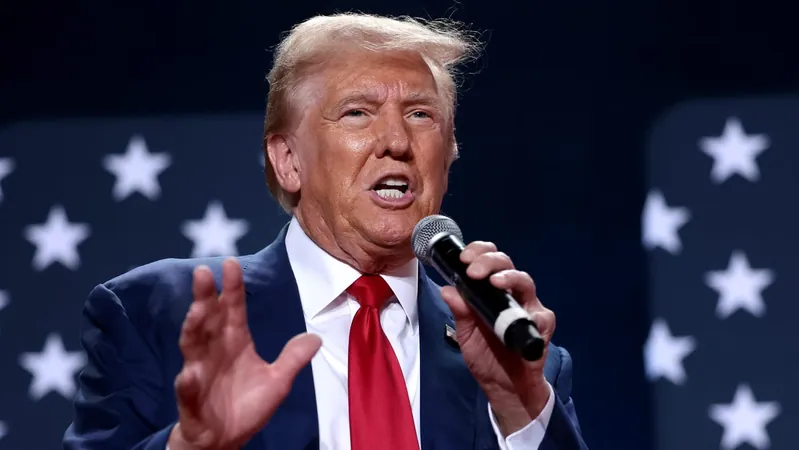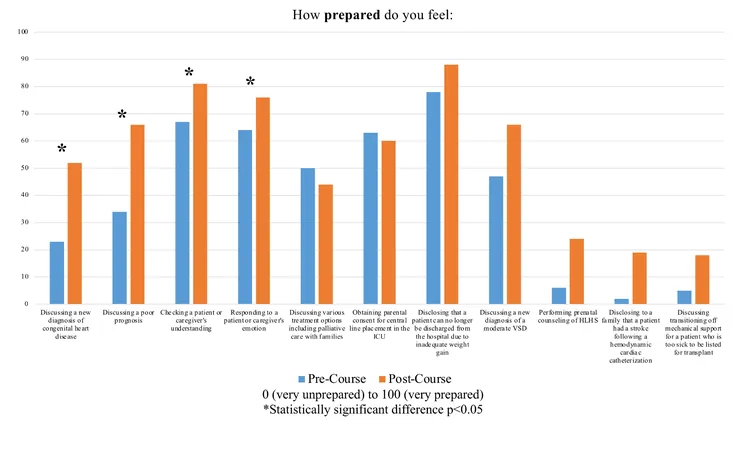
Trump’s Controversial Remarks on “Murder Genes” Spark Outrage
2024-10-07
Author: Charlotte
Introduction
In a recent interview, former President Donald Trump made headlines for yet another controversial statement, this time proposing a wild eugenics theory that claims certain racial groups possess “murder genes” that predispose them to violence. This incendiary comment was made during his appearance on The Hugh Hewitt radio show, where he criticized policies advocated by Vice President Kamala Harris and alleged her intentions to push the U.S. toward a communist regime.
Criticism of Kamala Harris’s Policies
Trump, never one to shy away from incendiary rhetoric, specifically targeted Harris’s initiatives regarding government assistance, declaring, “She wants to [do] government housing. She wants to go into government feeding. She wants to feed people… She has no clue.” These remarks are consistent with Trump’s long-standing approach of painting his political opponents as dangerously out of touch.
Accusations on Immigration and Genetics
Venturing further into dangerous territory, Trump accused Harris of mishandling illegal immigration. He made unfounded claims suggesting that her policies were allowing individuals with “bad genes” into the country. “How about allowing people to come to an open border, 13,000 of which were murders, many of them murdered far more than one person, and they are not happily living in the United States,” Trump stated, echoing a narrative that ties crime directly to genetics.
Historical Context of Trump's Remarks
This is not the first time Trump has touched upon the topic of genetics in his political messaging. Observers note a disturbing trend where Trump insinuates that certain racial groups are inherently inferior. In a speech back in 2020, he told a predominantly white audience in Minnesota that they possessed “good genes,” implying that racial differences translate into moral or ethical disparities.
Expert Opinions and Public Outrage
Experts in genetics and social science have widely condemned these views, arguing they are not only baseless but also promote harmful stereotypes and racism. Many public figures and commentators have responded with outrage, calling for accountability and a rejection of such dangerous ideologies in public discourse.
Conclusion
As the conversation about race, immigration, and public policy continues to evolve in America, Trump’s latest remarks underscore the deep divisions still present within the political landscape. Will this latest uproar affect his standing among voters? Only time will tell, but one thing remains clear: debates around race and genetics should be approached with caution, understanding, and a commitment to truth.









 Brasil (PT)
Brasil (PT)
 Canada (EN)
Canada (EN)
 Chile (ES)
Chile (ES)
 España (ES)
España (ES)
 France (FR)
France (FR)
 Hong Kong (EN)
Hong Kong (EN)
 Italia (IT)
Italia (IT)
 日本 (JA)
日本 (JA)
 Magyarország (HU)
Magyarország (HU)
 Norge (NO)
Norge (NO)
 Polska (PL)
Polska (PL)
 Schweiz (DE)
Schweiz (DE)
 Singapore (EN)
Singapore (EN)
 Sverige (SV)
Sverige (SV)
 Suomi (FI)
Suomi (FI)
 Türkiye (TR)
Türkiye (TR)